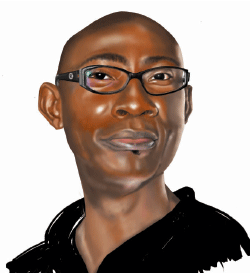Modern minimum wage laws date back to the Ordinance of Labourers (1349), a decree by king Edward III that set a maximum wage for labourers in medieval England.
Edward III, a wealthy land owner like his lords, depended on serfs to work his lands.
In the autumn of 1348, the Black Plague reached England and decimated the population. The severe shortage of labour caused wages to soar and encouraged Edward III to set a wage ceiling.
Subsequent amendments to the ordinance, such as the Statute of Labourers (1351), increased the penalties for paying a wage above the set rates.
As the centuries passed, the Justice of the Peace, who was charged with setting the maximum wage, also began to set formal minimum wages.
The practice was eventually formalised with the passage of the Act Fixing a Minimum Wage in 1604 by king James I for workers in the textile industry.
Ever since, and with the passage of centuries, minimum wage agitation has not ceased from country to country across the globe.
In the 1890s modern legislative attempts to regulate minimum wages were seen in New Zealand and Australia.
In Nigeria, the national minimum wage came into effect in 2011 after nearly two years of agitation and hard bargaining by the federal and state governments and the Nigeria Employers Consultative Association (NECA) which represented other private sector employers and organised labour.
Five years on, it appears the stage is again gradually setting for all the principal actors involved in the minimum wage struggle to return to the trenches to test their wits.
The bone of contention is the recent position taken by the Nigeria Governors’ Forum (NGF) to tinker with the N18,000 minimum wage, now five years old.
On Sunday, November 22, the Nigeria Labour Congress (NLC) warned governors to be wary of reneging on the national minimum wage pact if they do not want labour to mobilise against them.
In NLC’s calculation, the time is ripe to review the minimum wage upward, going by the agreement with the government of former President Goodluck Jonathan.
The leaders said they delayed sending the proposal for the review to President Muhammadu Buhari because they wanted to allow his government time to settle down.
Wikipedia defines minimum wage as the lowest remuneration that employers may legally pay to workers. Equivalently, it is the price floor below which workers may not sell their labour.
Although minimum wage laws are in effect in many jurisdictions, differences of opinion exist about the benefits and drawbacks.
“Supporters of the minimum wage say it increases the standard of living of workers, reduces poverty, reduces inequality, boosts morale and forces businesses to be more efficient.
“In contrast, opponents of the minimum wage say it increases poverty, increases unemployment (particularly among unskilled or inexperienced workers) and is damaging to businesses,” Wikipedia says.
NLC leaders are threatening fire and brimstone should government fail to review upward the N18,000 monthly take home pay of the least paid public worker.
They are also poised for action should governors attempt to reduce the amount as they mooted at their recent meeting where they said the minimum wage is no longer sustainable.
NLC President, Ayuba Waba, is emphatic that workers will do battle with the government if it slashes the minimum wage or if it fails to raise it.
Waba thundered: “The Nigeria Labour Congress is shocked by the statement credited to the Chairman of the Governors Forum, Governor Abdulaziz Yari, that the N18,000 national minimum wage promulgated into law in 2011 was no longer sustainable because of the fall in the price of crude oil.
“The governor, who was speaking on behalf of his colleagues at the end of a meeting of the forum, also claimed that the national minimum wage was ‘imposed’.
“We wish to make it abundantly clear that this attempt to reverse the national minimum wage is a declaration of war against the working people of this country, and we would have no alternative but to mobilise to respond to this act of aggression by the political class on our welfare.
“As early as May 2015, we gave notice that the N18,000 national minimum wage was due for review, and that we would be submitting a new proposal once the incoming government settled down.
“We have been patient and waited for the Buhari government to appoint ministers and thus have full compliments of officers to run the government.
“With the recent devaluation of the naira, and the attendant increase in inflation and the cost of living, even without the last Minimum Wage Act reaching the mandatory five years when it is due for review, we would have been justified to request for review.
“Now the five years are here – we are at the end of 2015, and with the cost of living being so high, we will soon table our new minimum wage demand to the federal government.
“If the recent statement by the Governors Forum is intended to maneouvre them away from addressing this imperative, then it is bound to fail as we are ready to do battle to raise the living standard of the Nigerian working people.”
Minimum wage law in Nigeria is relatively new. But the controversy it generates is global.
Last year, the Daily Caller News Foundation reported that minimum wage was hurting employment in Europe, with protesters calling for higher wages for fast food workers standing outside a McDonald’s restaurant in Oakland, California, United States on December 5, 2013.
While some say the minimum wage is killing jobs in Europe, others campaign for a minimum wage increase in the U.S.
Germany, without established hourly minimums, had an average unemployment rate of 19.5 per cent in 2012.
In the U.S., Democrats campaigned for a higher minimum wage ahead of the 2014 elections, with President Barack Obama urging Congress to “Give America a Raise.”
Obama argued that raising the minimum wage from $7.25 an hour to $10.10 an hour would not just raise wages for minimum wage workers, but would also raise earnings for 28 million individuals across the country.
He said hiking wages would boost the economy for everybody.
I am encouraged by the statement of Ogun State Governor, Ibikunle Amosun, on Wednesday, November 25 that “I am not speaking for the Governors’ Forum or for anybody at all. I am only speaking for myself as the governor of Ogun State and I am saying that I am not party to any call for a downward review of the national minimum wage.”
Both Rivers State Governor, Nyesom Wike, and Edo State Governor, Adams Oshiomhole, have also taken similar positions.
They have demonstarted that they are not in the league of governors who lack ideas of how to create wealth but are champions of how to spend money put in their trust.
In fact, governors who think of reducing the minimum wage show how callous, inhuman, selfish and greedy they are.
They show how unprepared they are for real governance, how empty they are as well as their contempt for the poor.
A vote for a governor who cannot pay N18,000 minimum wage is a wasted one and workers need to understand that when they are electing a governor.







